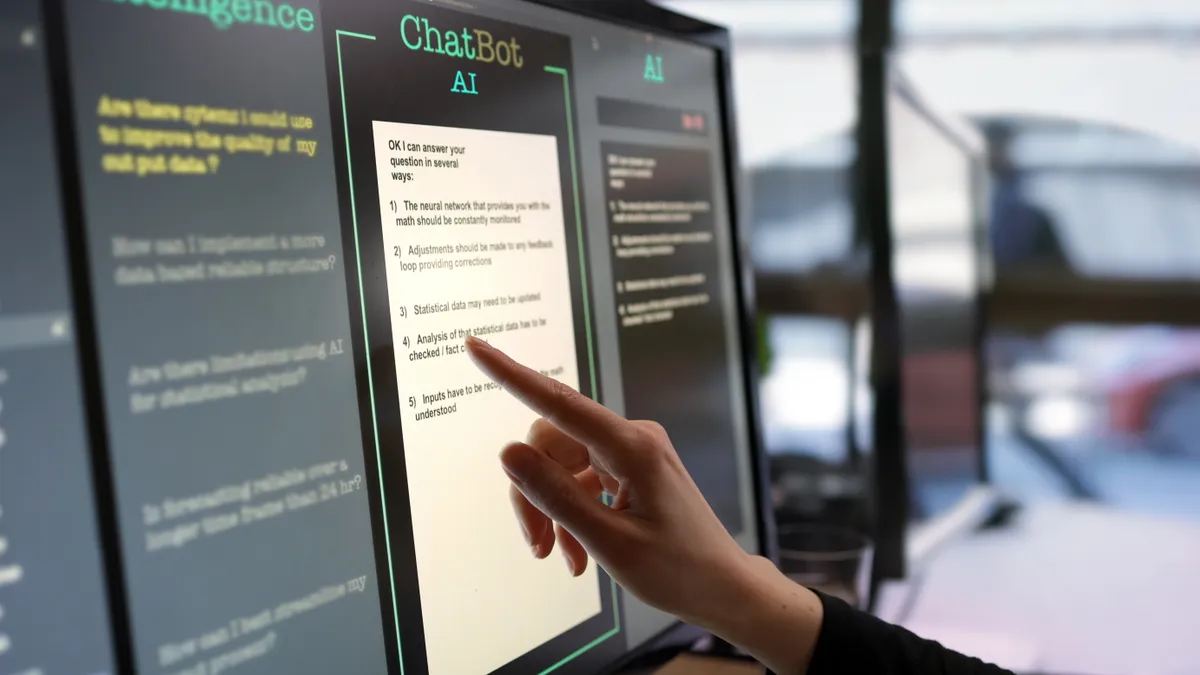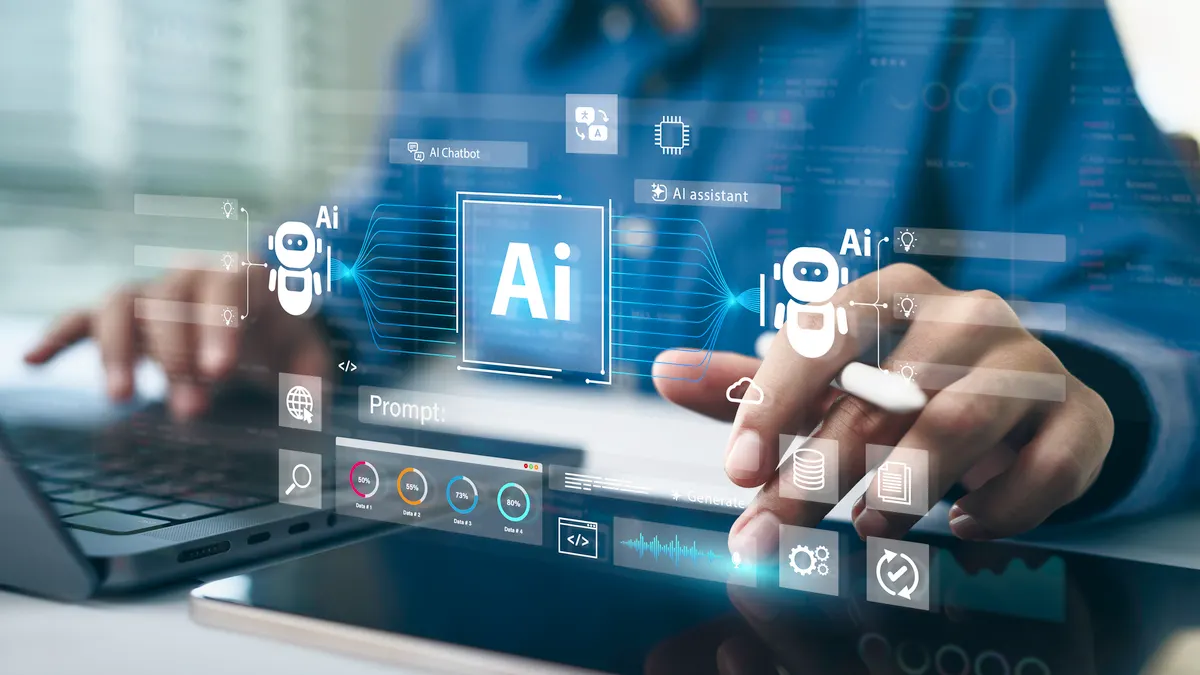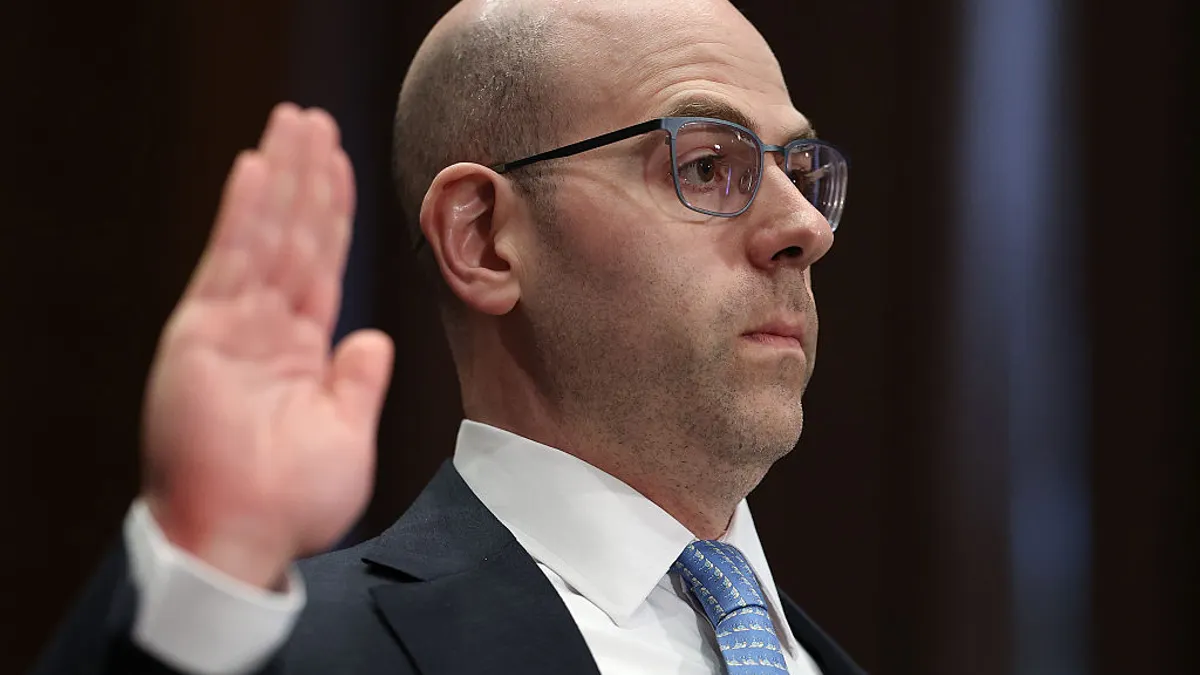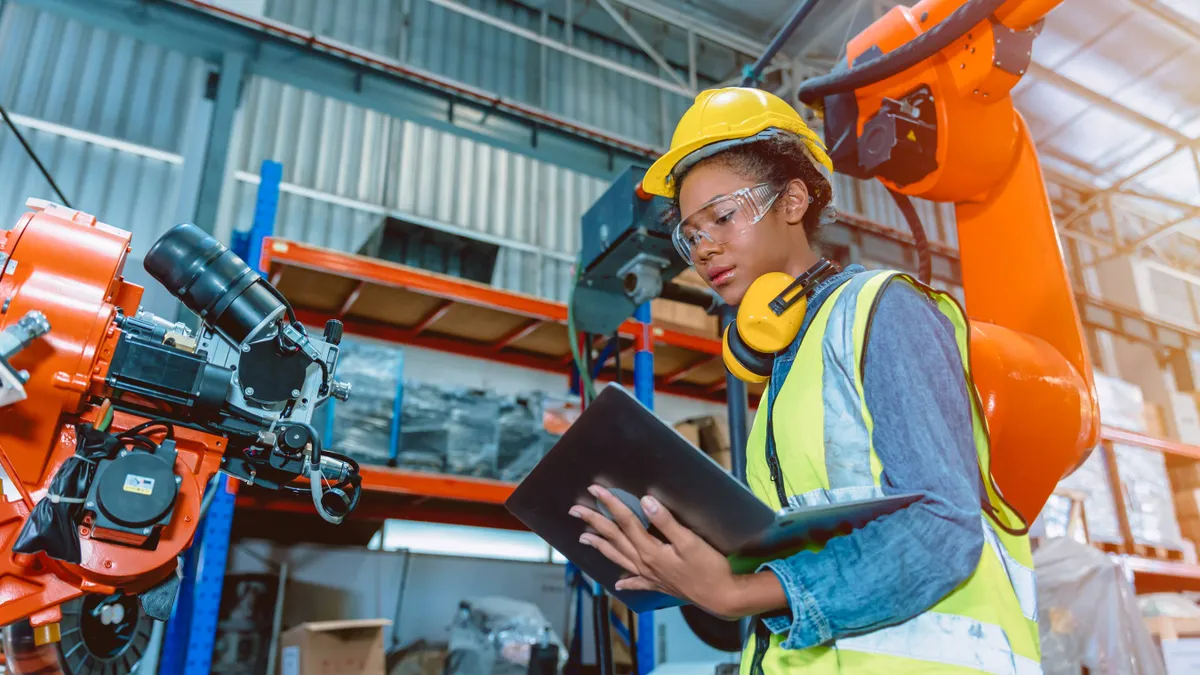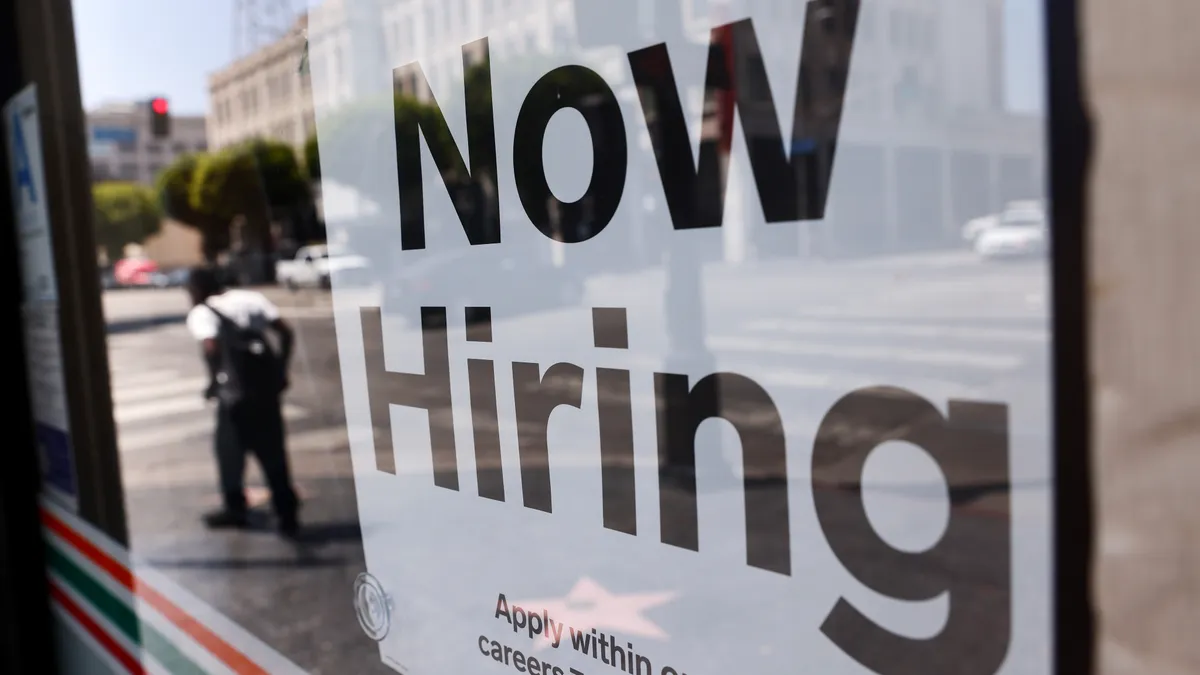The recent explosion of interest around artificial intelligence across the business community could help drive increased merger and acquisition activity in the year ahead, according to analysts who track dealmaking trends.
After a slowdown that began in 2022 and continued into 2023, M&A activity might be poised for a turnaround this year, amid factors such as stabilizing interest rates, cooling inflation and a growing fear among companies about being left behind in the race for acquiring new AI capabilities, analysts said.
“All that put together to me means that there’s going to be more deals in the next 12 to 24 months than what we’ve seen in the last 12 months,” Daniel Friedman, global leader of the transactions and integrations practice at Boston Consulting Group, a Boston-headquartered management consulting firm, said in an interview.
During the latter half of 2022 and well into 2023, M&A dealmakers faced their “most prolonged challenges” since the 2008 to 2009 financial crisis, according to a report published by BCG in October.
“Rising interest rates, geopolitical tensions, and recession fears led to a sustained downturn in deal activity that bottomed out in the first quarter of 2023,” the report said. “Since that low point, however, an increasing number of dealmakers have returned to the negotiating table, albeit with heightened caution.”
Global reported M&A deal value fell 32% in 2022 to $3.15 trillion, down from a record annual high of $4.62 trillion in 2021, according to a report from law firm Wilmer Cutler Pickering Hale and Dorr. Slowing economic growth combined with other challenges to create “a hostile environment for M&A activity in 2022, with deal volumes down across the board and average deal prices declining in all sectors except energy,” the report said.
The trend continued into the first few months of 2023, easing up later in the year, with some industries and parts of the world rebounding faster than others, according to BCG.
Economic conditions are now improving to the point where many companies may be in a better position to make strategic investments in critical areas such as digitization and AI, according to Friedman.
“With interest rates coming down and inflation getting more under control, there’s a lot of dry powder out there,” he said. “I think it’s a fair assumption that we’re going to see a rise in dealmaking, including in AI and technology.”
‘Seismic shift’ predicted
Willis Towers Watson reported in November that it expects AI to drive a “seismic shift” in M&A dealmaking in 2024.
Given the growing prominence of AI, “it stands to reason that companies are going to try to figure out how to add it to their own portfolio of operations,” David Dean, managing director of global M&A at WTW, said in an interview.
Dean said AI could also play a greater role this year as a tool in the M&A process itself, allowing companies to accelerate their evaluation of potential targets, for example. “I think there’s growing interest in understanding what AI can do to make delivery of M&A services more efficient,” he said.
ChatGPT, a so-called generative AI tool created by Microsoft-backed OpenAI, quickly grabbed the world’s attention after it was launched in November 2022.
A global McKinsey survey released last August found that one-third of organizations were already regularly using generative AI in at least one business function.
“Amid recent advances, AI has risen from a topic relegated to tech employees to a focus of company leaders: nearly one-quarter of surveyed C-suite executives say they are personally using gen AI tools for work, and more than one-quarter of respondents from companies using AI say gen AI is already on their boards’ agendas,” McKinsey said in a report on the findings.
Meanwhile, the aggregate value of global M&A transactions related to AI grew 23% to $75 billion in 2023 compared with a year earlier, although the actual number of such deals fell by about 7%, according to data provided by S&P Global Market Intelligence.
“AI was perhaps one of the biggest stories of the year as it relates to tech M&A,” Melissa Incera, a research analyst at the firm specializing in data, AI and analytics, said in an interview. “It was a sector that was really keeping buyers engaged and motivated at a time when they were very much in cost containment mode.”
Biggest AI deals of 2023
The biggest AI-related M&A transaction of 2023 was Cisco System’s agreement to acquire cybersecurity company Splunk for $28 billion, according to Incera. The deal, announced in September, shows that Cisco is focused on strengthening its position in the cybersecurity market by beefing up its AI capabilities, Daniel Ives, a senior equity research analyst at Wedbush Securities, said in a note to clients after the announcement, as reported by the Associated Press.
“For Cisco this is a shot across the bow at [cybersecurity competitors] Palo Alto [Networks], Checkpoint, Crowdstrike, Microsoft, Zscaler and others that the tech stalwart is not sitting idle in this market and now is making an aggressive play to gain market share in the coming years,” Ives said in the client note.
Another large AI-related deal in 2023 was IBM’s agreement to buy Apptio, a provider of financial and operational IT management and optimization software, for $4.6 billion.
Not all acquirers in these deals have been technology companies. In June, for example, Thomson Reuters announced an agreement to acquire Casetext, a legal startup with an AI-powered assistant for law professionals, for $650 million.
“Technology companies are at the forefront, but I think it’s a broader trend,” BCG’s Friedman said.



